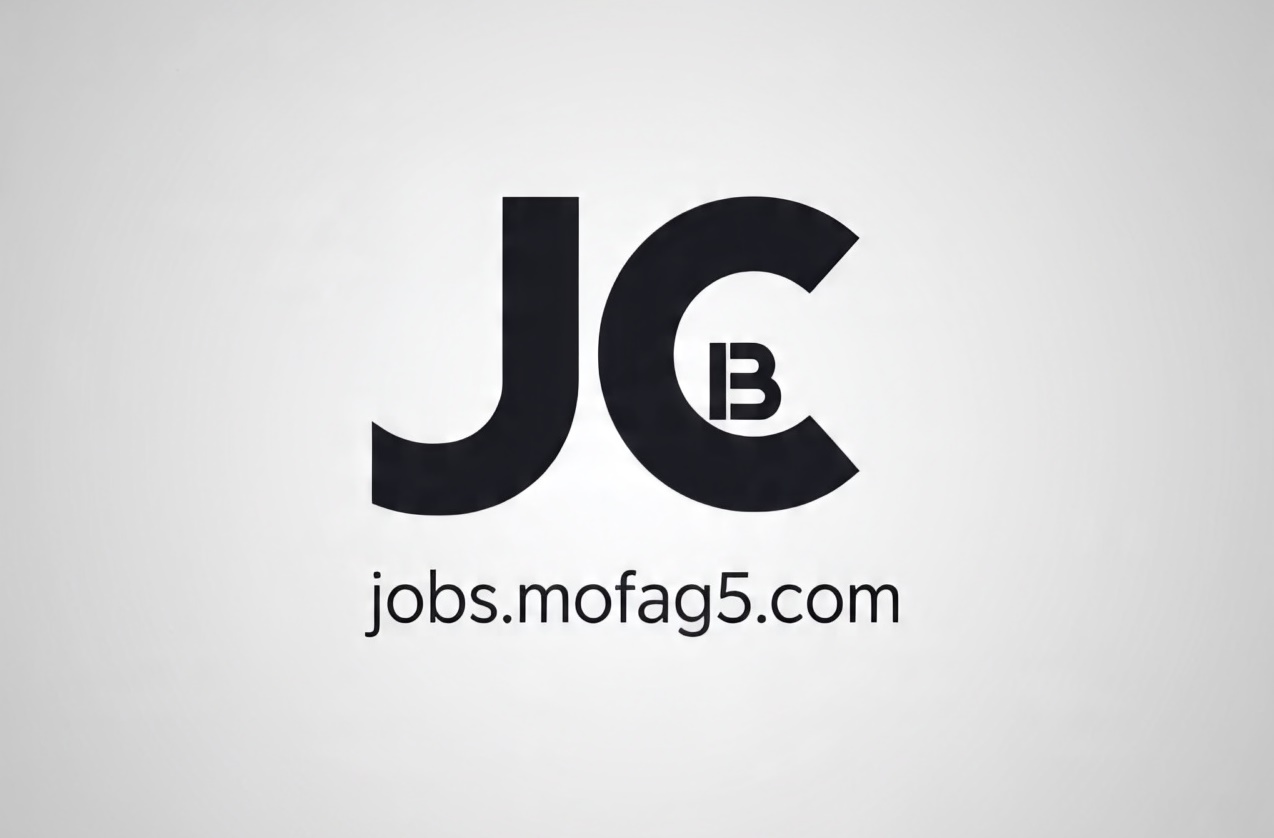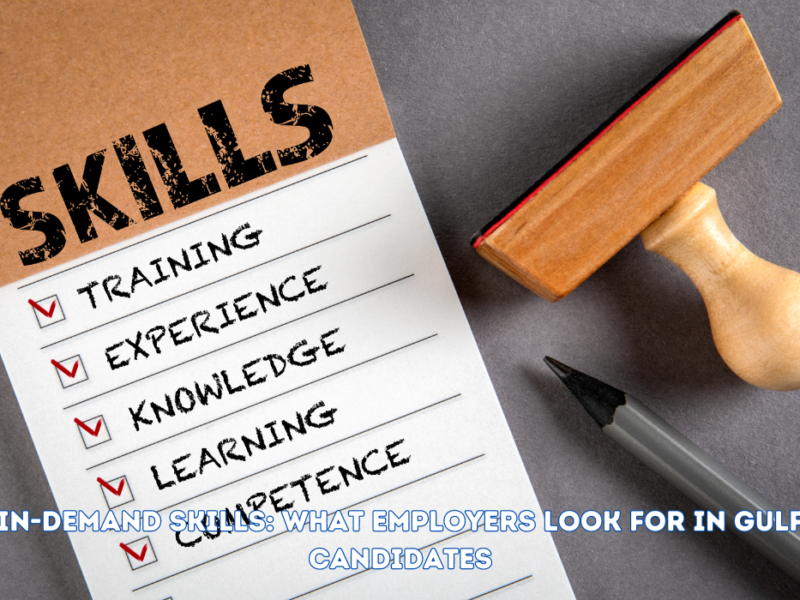In today’s competitive job market, possessing the right set of skills is crucial for Gulf candidates aiming to secure employment opportunities in the region. Gulf employers often seek candidates who not only have the necessary qualifications but also possess specific skills that align with the demands of their respective industries. In this article, we delve into the in-demand skills that employers in the Gulf region look for when hiring candidates.
Technical Skills
Technical skills refer to the expertise and proficiency in specific tasks or technologies related to a particular industry. In the Gulf region, employers often prioritize candidates with technical skills relevant to their sectors. For instance, in the field of information technology, proficiency in programming languages, cybersecurity, and cloud computing is highly sought after.
Soft Skills
Soft skills are non-technical abilities that enable individuals to interact effectively and harmoniously with others in the workplace. These skills include communication, teamwork, problem-solving, and time management. Gulf employers value candidates who not only possess the necessary technical skills but also demonstrate strong soft skills, as they contribute to a positive work environment and overall productivity.
Industry-Specific Skills
Certain industries in the Gulf have unique skill requirements based on their nature of operations and market demands. For example, in the hospitality sector, customer service skills, attention to detail, and knowledge of cultural etiquette are essential. Similarly, the oil and gas industry may require candidates with expertise in safety protocols, project management, and environmental regulations.
Language Proficiency
Language proficiency plays a vital role in the Gulf job market, where multiculturalism is prevalent. Employers often seek candidates who are proficient in languages such as Arabic, English, and other regional dialects. Being bilingual or multilingual can significantly enhance a candidate’s employability and effectiveness in communicating with colleagues and clients.
Cultural Awareness
Cultural awareness involves understanding and respecting the customs, traditions, and values of different cultures. In the Gulf, where diverse nationalities coexist, cultural awareness is highly valued by employers. Candidates who demonstrate cultural sensitivity and adaptability are more likely to succeed in the multicultural work environment of the Gulf region.
Adaptability and Flexibility
The ability to adapt to new situations and be flexible in approach is essential for Gulf candidates, given the dynamic nature of the region’s job market. Employers value candidates who can adjust to changing circumstances, work under pressure, and embrace innovation. Adaptability and flexibility contribute to the resilience and agility of employees in the Gulf workplace.
Educational Qualifications
While technical skills and experience are important, educational qualifications also play a significant role in the hiring process in the Gulf. Employers often look for candidates with relevant degrees, certifications, or vocational training that align with the requirements of the job role. A strong educational background demonstrates a candidate’s commitment to continuous learning and professional development.
Experience and Expertise
Experience in a specific field or industry is highly valued by Gulf employers. Candidates with relevant work experience not only possess practical knowledge but also understand the intricacies of their respective industries. Additionally, expertise in niche areas or specialized skills can give candidates a competitive edge in the Gulf job market.
Digital Literacy
In today’s digital age, proficiency in technology and digital tools is essential for success in the Gulf job market. Candidates who are digitally literate demonstrate competence in using computers, software applications, and online platforms. Digital literacy enhances productivity, efficiency, and communication skills, making candidates more valuable to employers.
Problem-Solving Skills
Problem-solving skills are highly valued by Gulf employers as they enable individuals to identify, analyze, and resolve complex issues effectively. Candidates who demonstrate strong problem-solving abilities can contribute to innovation, process improvement, and decision-making within organizations. Problem solvers are regarded as valuable assets in the Gulf workplace.
Leadership and Management Skills
Leadership and management skills are essential for candidates aspiring to advance their careers in the Gulf. Employers seek individuals who can lead teams, drive projects, and inspire others to achieve goals. Effective leadership and management skills include strategic thinking, decision-making, conflict resolution, and delegation.
Communication Skills
Effective communication is fundamental in the Gulf workplace, where diverse teams collaborate on various projects. Candidates with strong communication skills can articulate ideas clearly, listen actively, and convey information persuasively. Good communication fosters collaboration, reduces misunderstandings, and enhances productivity in the Gulf work environment.
Networking Abilities
Networking is integral to career advancement in the Gulf, where relationships and connections often play a significant role in job opportunities. Candidates who actively network and build professional relationships can expand their career prospects, gain valuable insights, and access hidden job markets. Effective networking requires interpersonal skills, initiative, and follow-up.
Conclusion
In conclusion, possessing in-demand skills is crucial for Gulf candidates seeking employment opportunities in the region’s competitive job market. Employers look for candidates who not only have the requisite qualifications but also demonstrate technical expertise, soft skills, cultural awareness, adaptability, and other key attributes. By continuously developing and showcasing these skills, candidates can enhance their employability and succeed in the dynamic Gulf workplace.
Unique FAQs
- What are some industry-specific skills highly sought after in the Gulf region?
- Industries such as hospitality, healthcare, and construction often require specialized skills such as customer service, medical expertise, and engineering proficiency.
- How can candidates improve their language proficiency for the Gulf job market?
- Candidates can enroll in language courses, practice speaking with native speakers, and immerse themselves in the culture to enhance their language skills.
- Why is cultural awareness important for Gulf candidates?
- Cultural awareness facilitates effective communication, fosters mutual respect, and enhances collaboration in the diverse Gulf workplace.
- What role does networking play in securing employment in the Gulf?
- Networking allows candidates to build connections, access job opportunities, and stay informed about industry trends and developments in the Gulf region.
- How can candidates demonstrate adaptability and flexibility to Gulf employers?
- Candidates can showcase their adaptability by discussing past experiences of handling change, learning new skills, and successfully navigating challenging situations in the workplace.


Comments